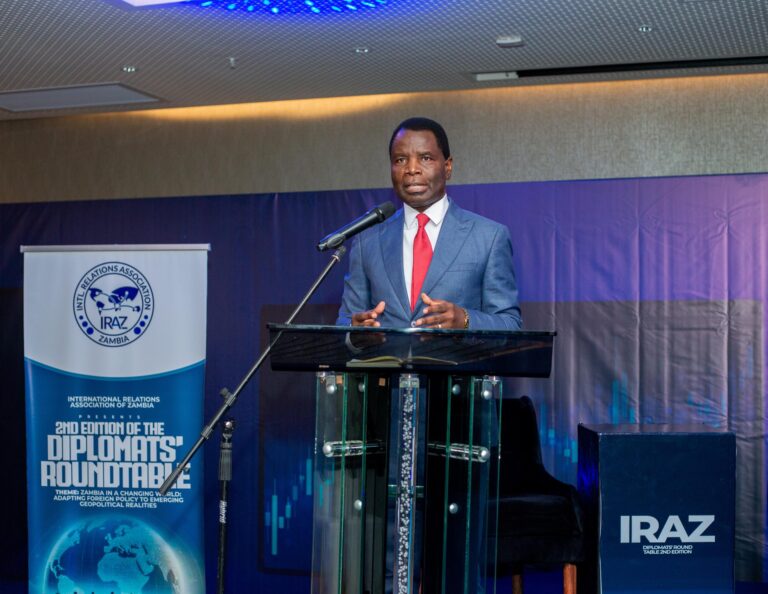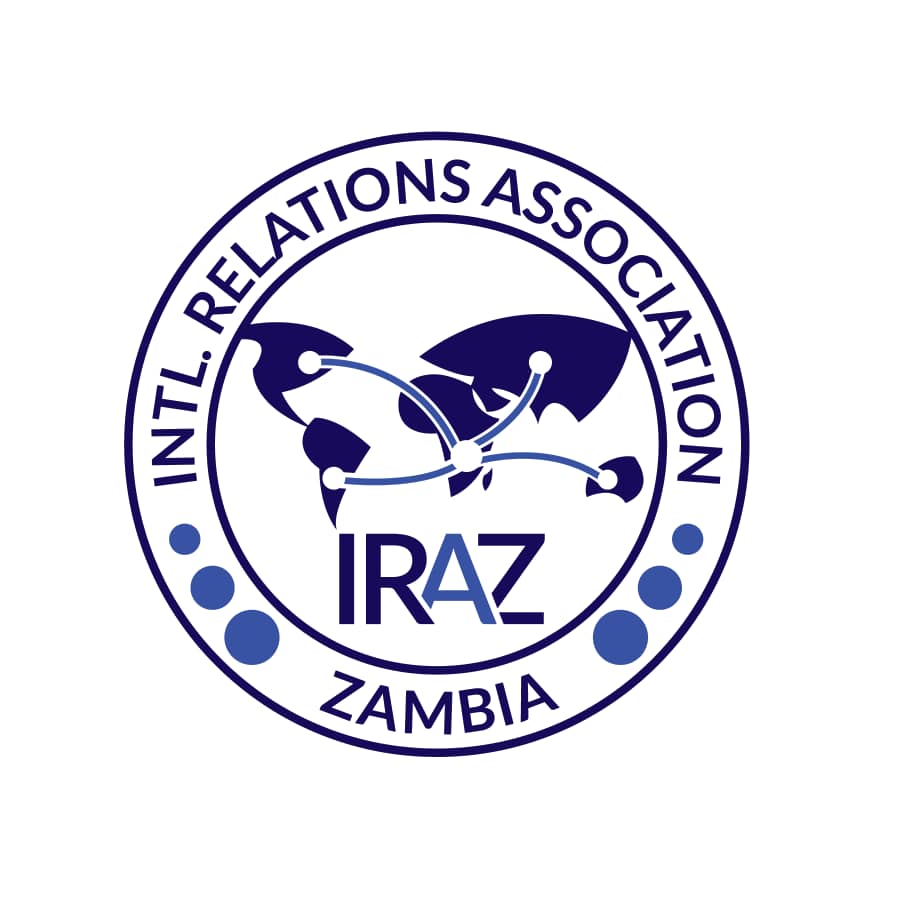Talking points by Dr. Kasuka Mutukwa to the 2ND EDITION OF THE DIPLOMAT’S ROUNDTABLE.
Theme: Zambia in a changing world: adapting foreign policy to emerging Geopolitical Realities with specific focus on ‘navigating uncertain times in diplomacy and international relations’

Congratulations for forming the International Relations Association of Zambia (IRAZ) which could now close the gap in the sharing of knowledge on the state of the world affairs and Zambia’s position in it.
- International Relations provides a conceptual framework for analyzing the state of the world affairs as a whole and in parts. It provides a barometer on global affairs. International relations should help us understand the underlying facts of how world affairs are evolving.
- In academia the pillars of international relations are:
- International Politics
- Diplomacy
- International Organizations
- International Economics
- International Law
- Current states of international relations
The current state of international relations reflects dramatic changes. There are significant emerging trends which are reflected in transformations. While the world overall is at peace it is threated by open wars that have impacted on the entire world. These are:
- The Russian war on Ukraine
- Israeli war against Palestine
- The Civil war in Sudan between the two Armed forces
- Rebel wars in many parts of the DRC
- The Islamic State Wars against the states of the Sahel which includes Mali and Burkina Faso.
- There are threats of open conflicts in Southern Sudan and other conflicts are in Ethiopia and Somalia.
4 Other major challenges on international peace and security
Among the major challenges are the following:
- Threats by some major global powers like the US and Russia to occupy some sovereign countries.
- continuation of suppressing of would be nations by denying them self-determination and independence which include Palestine, Ukraine and Kurds.
- the declining role of the United Nations and especially its security council and its Secretary General in maintaining international peace and security as mandated by the UN Chatter. Four of the five permanent members of the Security Council except China have been using their veto power to paralyze the ability of the UN to deal with major wars that are raging today.
- A number of continental and regional organizations such as the African Union, ECOWAS and the great lakes organization, east African community, SADC and Asian have all been unable to address most of the conflicts in their regions.
- The other emerging issue if not adequately addressed include conflicts in countries over disputed elections. Conflicts over elections and the emergency of totalitarianism especially in the global south countries with Africa at the center have potential to destabilize the countries concerned and their regions.
- another major trend that has emerged with president Trump administration is that a number of international organizations are under threat which include WHO, WTO, and international financial institutions.
The other trend to watch is that the gaps being opened up provide opportunities for China as a super power to play its role.
The other is the emerging role of the BRICS. BRICS is an acronym for the powerful grouping of the world’s leading emerging market economies, namely Brazil, Russia, India, China and South Africa.
5 Crisis in the international economy
Challenges in the international economy have been developing slowly over the past decade. The election of president Trump in the US has brought about the crisis that is referred to as a trade war. The crisis has not only engulfed America’s adversaries but it has shown serious implications even for America’s allays in the global north especially the European Union (EU) and Canada. What has also emerged as a major issue is the future of international aid and technical cooperation between the North and the South. Regrettably, many countries in the south Zambia included were heavily depended on international aid that included budget support. Strategic thinkers like Dambisa Moyo warned especially the global south a decade ago that Aid will become the dead issue in her best-selling book entitled Dead AID. Dr. Moyo had foreseen that major donors were facing donor fatigue and that resources were falling. Among the reasons sighted for the challenges of aid were that, the results of such aid were not producing most of the benefits that were expected by recipients and donors. There have been also challenges on how the donor resources have been utilized by the recipient. While there have been some cases of good utilization of donor funds, there have been many cases of the miss-use of donor funds which has led to suspension of donor funding even in the case of Zambia. The most urgent issue at hand is how a country like Zambia responds to the closure of US Aid. It is well kwon that US aid was the main funder of the Health sector in Zambia and many other countries. My call is for Zambia to prioritize the consideration and debate on what should be done to fill the gap that will continue to be faced with the decline in international aid. Is it not time that Zambia considered to exploit its own resources especially minerals to generate its own resources and to become self-reliant?
It is therefore, urgent to revisit the content of what is called ‘economic diplomacy’ in its relations with other countries and international economic groupings. There is also urgent need to revise Zambia’s trade relations with other countries and economic cooperation with neighbors in SADC and COMESA.
The agenda I have suggested above should also be for consideration by the AU and SADC so as to align them with the changing realities in international relations. The UN Economic Commission would also be well advised to review their strategies on providing technical assistance to countries like Zambia to realign their programs.
6 Opportunities for Zambia
A number of developments in the world can also present themselves as opportunities for Zambia re-strategize to utilize its enormous natural resources endowments and it’s abundant human resources capital of professionals both from within the country and outside in the diaspora. I learnt recently that for example that there are over 5000 Zambians in California in USA and 3000 Zambians in Western Australia who work mostly in the mines. Many of these Zambians in diaspora are accomplished professionals who hold technical and professional positions in many sectors of economies in Africa and abroad. These could form a major contributor in transforming Zambia’s fortunes by using their experiences. It should be noted further that the growing phenomena of ant-immigration in the global north and anti-foreigners in some developed countries should be a wake-up call to our country to grow our economies and employment opportunities and to lessen dependence on others. It is only with these measures that we can develop mutual relations of mutual cooperation.
It is clear that Zambians desire to interact and enjoy relations with others which are cordial and reciprocal. The good news is that Zambian people are friendly, peaceful and welcoming.
How has Zambia been addressing the current challenges in the international system? How has Zambia been navigating its position in the polarized world using pillars of its foreign policy?
By Dr. Kasuka Mutukwa
Cell; 0977716944/ What-sap 0770792750
